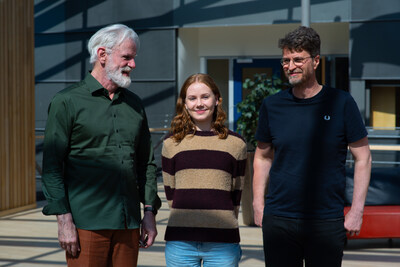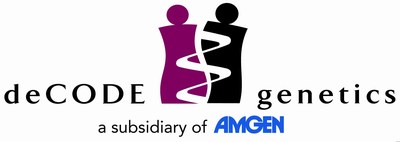
Source: cision | Published on: Friday, 07 June 2024
A new study from deCODE genetics uses pedigrees and sequence data from 64,806 Icelanders to shed light on the rate and nature of mutations in mitochondrial DNA (mtDNA) and the peculiar dynamics of its maternal transmission
REYKJAVIK, Iceland, June 7, 2024 -- In a paper published today in Cell, scientists from deCODE genetics, a subsidiary of Amgen, present the largest study to date of germline mtDNA mutations in humans and their transmission across 116,663 mother-child pairs. The study documents the astonishing extent of hypermutability at some positions in mtDNA, including the well-known deleterious A>G mutation at position 3243 which causes the MELAS syndrome. The mutation occurred 15 times in the 2,548 matrilineal pedigrees, but typically disappeared after several generations, due to its severe impact on the health of carriers.

Strong aggregate evidence was uncovered for selection against many such short-lived deleterious mtDNA mutations in the pedigrees. The deCODE team also reported evidence for an extensive earlier episode of negative selection affecting mitochondria, called germline selection, where poorly functioning mitochondrial DNA molecules are discarded during the development of oocytes. Finally, they used the large number of transmissisons of mtDNA mutations in the pedigrees to reliably estimate that individuals inherit, on average, only around 3 units of mtDNA from their mothers – fewer than indicated by previous studies.
"It is remarkable that the hundreds of thousands of mtDNA carried by oocytes are derived from only about three of the mtDNA molecules originally carried by the mother," noted Agnar Helgason, a corresponding author of the paper. "This drastic bottleneck determines the rapid rate at which new mutations in the mtDNA germline can become lost or fixed over just a handful of generations in a pedigree, and must be in part due to a selection process during the development of oocytes, where mtDNA molecules with deleterious mutations are removed from the germline."
"This study takes us a few steps closer to understanding the basis of the extraordinary variation in mutation rates across the nucelotides of the mtDNA genome, even between different alleles at the same position", said Kári Stefánsson, CEO of deCODE and a corresponding author of the paper. "Unfortunately, it is the hypermutability of some pathogenic mutations that has made them so prevalent and thereby easier to discover. However, our findings suggest that many rarer pathogenic mtDNA mutations that are responsible for disease burden in human populations remain to be discovered."
Video: https://vimeo.com/953941695/4467620687?share=copy
Contact:
Thora Kristin Asgeirsdottir
deCODE genetics
354 894 1909
Email: thoraa@decode.is

Photo - https://mma.prnewswire.com/media/2432556/deCODE_genetics_Kari_Erla_Agnar.jpg
Logo - https://mma.prnewswire.com/media/1535464/deCODE_genetics_Amgen_Logo.jpg
![]() View original content:https://www.prnewswire.co.uk/news-releases/decode-genetics-the-rate-nature-and-transmission-of-mitochondrial-dna-mutations-in-humans-302166482.html
View original content:https://www.prnewswire.co.uk/news-releases/decode-genetics-the-rate-nature-and-transmission-of-mitochondrial-dna-mutations-in-humans-302166482.html
